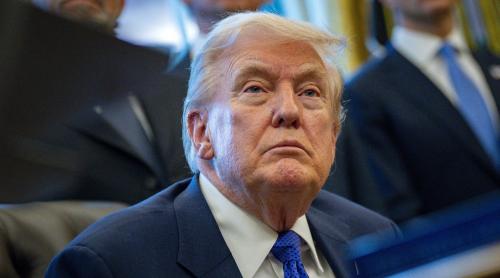
Although two years have passed since it joined the European Union, Romania is yet to start walking tall. The pursuit of affirmation in the European constellation is made on all fours, very carefully, in such a way to avoid going over the speed limit.
Ovidiu Dranga, Romania's ambassador in Belgium, was determined by our attitude of eternal await for precious indications from various guardianship forums to leave the diplomatic language and emphasize the strong points of our foreign policy. Present at the conference “Romania, two years of European balance”, held at the European Parliament and organized by the European Center of International Relations and Strategic Studies, in collaboration with the Center for International Public Policy and Administration , the diplomat warned that, given the new international context, we must have our own opinion. When an ambassador of Romania fires the alarm signal saying we are not able to care for our own interest, that we are not able to associate with influential partners to achieve our goals, it means that things are worse than we think. In the choir of the member nations of the European Union, Romania’s voice is harrumphed and our vision on the European construction isn’t known by anyone.
Ambassador Ovidiu Dranga has nominated as single success of the Romanian diplomacy the fact that the Black Sea project is on the EU agenda. Of course, this project is not fully exploited, as it should happen, especially that we are at the border of the Union, which should be an asset for us taking part in the development of the programs of enhancement of the security in the community space. For the Romanian ambassador in Brussels, all these things have a single explanation: our country is yet to overcome the statute of candidate for the European Union integration. One of the consequences is that we have difficulties in attracting the European money.
At the same conference, the rector of the Romanian Banking Institute, Dorina Poanta, argued that the banking system should become the key of the circuit for the absorption of the structural funds. In her view, the role of the banks in Romania is very important, as the European irredeemable funds get to the companies only after the investment is finalized. The study presented by the rector of the Romanian Banking Institute shows that among the causes for which the funds find it that hard to reach the public or private investment projects there is bureaucracy, delayed releases, the approval period and the lack in experience in evaluating the projects. The university research shows that most domestic banks are yet to prepare their flexible tools and are not adapted to have access to the European funds. From the 42 domestic banks, only five of them got involved in supporting the ones that want to have access to the respective funds. This happens because, sometimes, the experienced specialists are missing. In the same time, most banks accuse the difficult communication with the authorities responsible for the access to these funds.
The issues discussed at the conference that took place at the European Parliament show a reality that we shouldn’t change, especially in these electoral moments. And the political offer in the campaign must seek the building of that Romanian view for the EU. The view is to be materialized in projects supported by the entire political class that would make it to the European agenda. But is there anyone capable of that?
Citește pe Antena3.ro

















